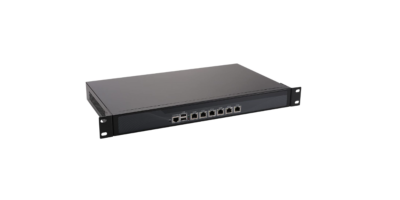In today’s rapidly evolving healthcare landscape, the effective management and exchange of health information are paramount. With the advent of digital technology, the healthcare sector has witnessed a transformative shift towards electronic health records (EHRs) and advanced health information exchange (HIE) systems. At the heart of this digital revolution lies the Health Information Technology for Economic and Clinical Health (HITECH) Act, a crucial piece of legislation that has played a pivotal role in shaping modern healthcare. In this blog post, we delve into the significance of the HITECH Act and its impact on healthcare delivery, patient outcomes, and the broader healthcare ecosystem.
Understanding the HITECH Act
Enacted in 2009 as part of the American Recovery and Reinvestment Act (ARRA), the HITECH Act was introduced with the primary goal of promoting the adoption and meaningful use of health information technology (HIT). It aimed to incentivize healthcare providers to transition from paper-based record-keeping systems to electronic health records (EHRs), thereby enhancing the quality, efficiency, and safety of patient care. The Act allocated substantial funding towards the implementation of EHR systems and the establishment of health information exchange networks.
Role of the HITECH Act in Modern Healthcare
The HITECH Act has had a profound impact on patient care, promoting better coordination, continuity, and quality of care. Here are some key ways in which the Act has revolutionized modern healthcare:
1. Advancing Patient Engagement and Empowerment
The HITECH Act also emphasized the importance of engaging patients in their own healthcare journey. Through the implementation of patient portals and secure messaging systems, patients gained greater access to their health information, lab results, medication records, and appointment schedules. Empowering patients with access to their health data not only promotes transparency and accountability but also encourages active participation in shared decision-making and self-management of chronic conditions.
2. Strengthening Privacy and Security Protections
In tandem with promoting the adoption of health IT, the HITECH Act introduced stringent measures to safeguard the privacy and security of electronic health information. It established provisions for breach notification, enforcement of HIPAA (Health Insurance Portability and Accountability Act) regulations, and the imposition of penalties for non-compliance.
These provisions aimed to instill trust and confidence in patients regarding the confidentiality and integrity of their health data, thereby mitigating concerns related to data breaches and unauthorized access.
3. Fostering Innovation and Quality Improvement
Beyond promoting the adoption of EHR systems, the HITECH Act catalyzed innovation in healthcare delivery and quality improvement initiatives. By incentivizing the meaningful use of health IT, the Act spurred the development of clinical decision support tools, telemedicine platforms, population health management solutions, and other technological innovations aimed at enhancing patient outcomes and reducing healthcare disparities.
Moreover, the Act facilitated the collection and analysis of health data on a larger scale, enabling stakeholders to identify trends, measure performance metrics, and drive evidence-based practice.
3. Challenges and Opportunities Ahead
While the HITECH Act has made significant strides in advancing health information technology and improving healthcare delivery, several challenges persist. Interoperability barriers, data silos, usability issues, and privacy concerns continue to impede the seamless exchange and utilization of health information.
Addressing these challenges requires collaborative efforts from policymakers, healthcare providers, technology vendors, and other stakeholders to drive towards a more integrated and patient-centered healthcare ecosystem.
The Future of the HITECH Act and Healthcare
Over a decade since its enactment, the HITECH Act continues to shape the healthcare landscape. As technology continues to advance at a rapid pace, the Act serves as a catalyst for further innovation and transformation in healthcare delivery. With new regulations such as the 21st Century Cures Act and ONC (Office of the National Coordinator for Health IT) initiatives, the HITECH Act’s impact is set to expand even further.
As healthcare organizations strive towards achieving interoperability and moving towards value-based care models, compliance with the HITECH Act’s provisions remains critical. Ultimately, the Act continues to be a driving force in promoting better patient care, enhancing health technology adoption, and shaping the future of modern healthcare.
In Conclusion
The HITECH Act has been a game-changer in modern healthcare, revolutionizing the way health information is managed and exchanged. Its impact on patient care, health technology, and overall healthcare policy cannot be overstated. As we continue to see advancements in technology and digital health, the HITECH Act will undoubtedly remain a critical piece of legislation in supporting and shaping the future of healthcare. So, it is essential for healthcare organizations to stay informed and compliant with the provisions of this Act as they continue to strive towards delivering high-quality, patient-centered care
MedicalITG offers a range of consulting and technology services to help healthcare organizations navigate the challenges and opportunities presented by the HITECH Act. Our team of experts has extensive experience in health information technology, compliance, and quality improvement, making us well-equipped to support your organization’s needs. Contact us today to learn more about how we can assist you in harnessing the power of health IT to drive better patient outcomes. So, let us work together towards a brighter and more connected future for healthcare. Call us on (877) 220-8774 or email at info@medicalitg.com.










